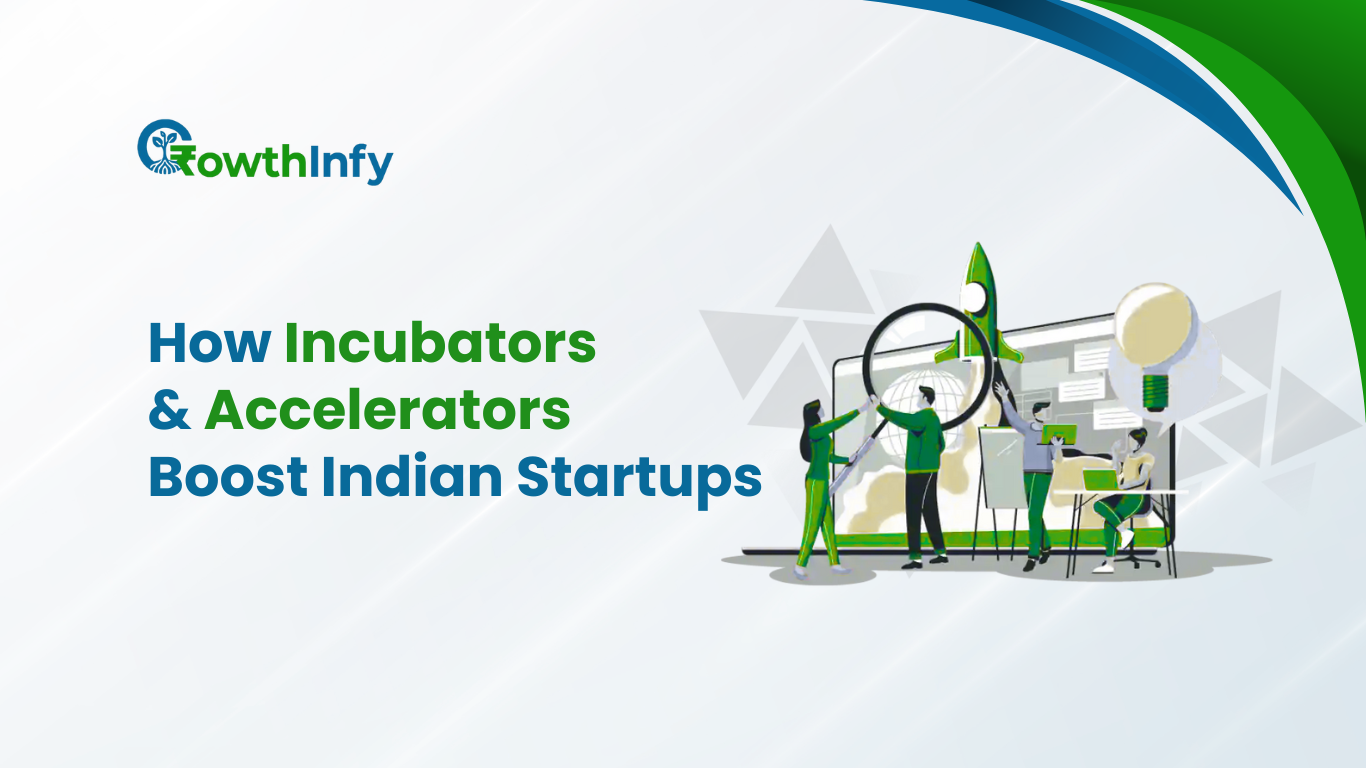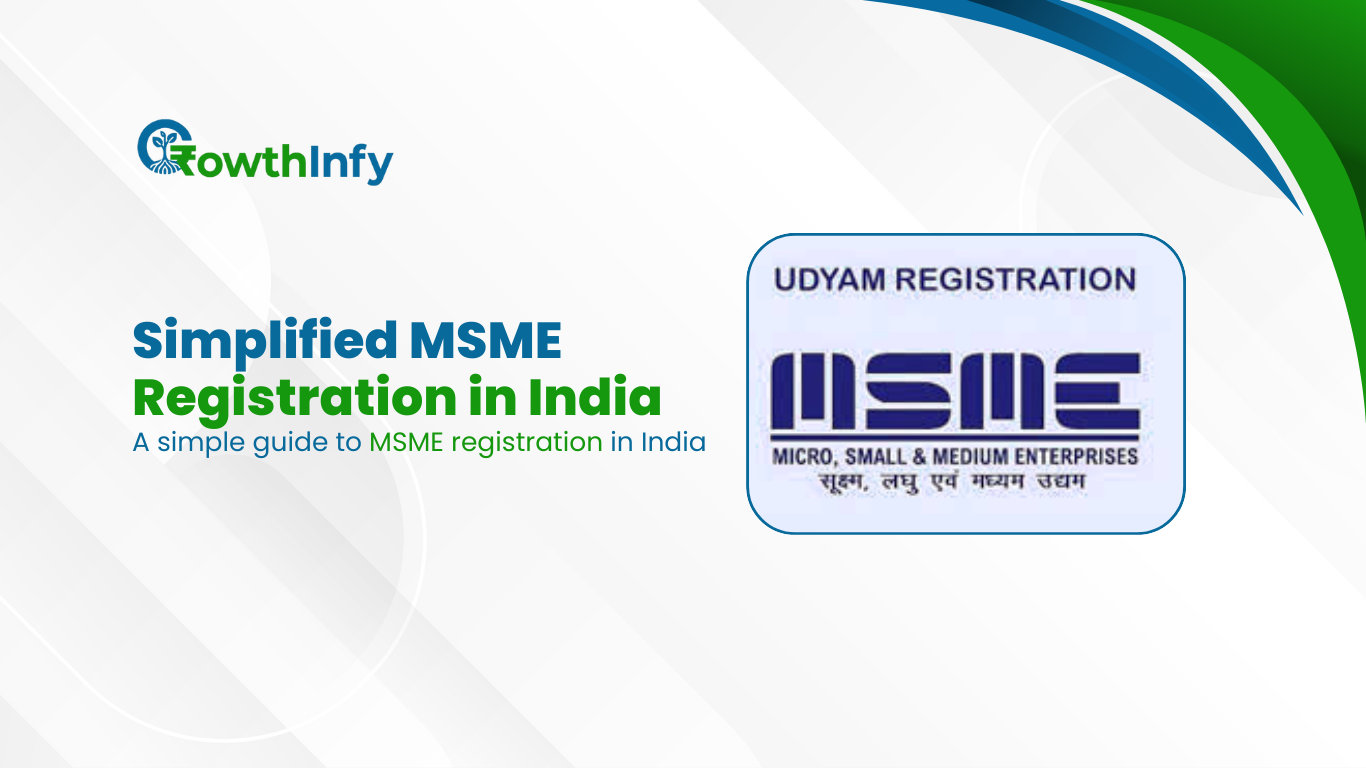How Incubators and Accelerators Are Helping Indian Startups Grow
India has a booming startup industry and by 2025, it is expected to be ranked the third largest in the world, with more than 1,40,800 startups. India’s rapidly evolving startup ecosystem will continue to grow with a strong support ecosystem including a wide range of incubators and accelerators that are currently providing real support to early-stage businesses in India. All of these programs have developed blocker funding/investments, mentoring and networking resources to help entrepreneurs convert ideas into viable businesses. This piece will examine how incubators and accelerators in India are shaping the startup ecosystem and supporting innovation.
What Are Incubators and Accelerators?
Incubators and accelerators are organizations that have been developed to support startups, but they have slightly different functions. Incubators focus on early-stage startups that are typically still in the ideation stage. Incubators offer long-term support (6 months up to 2 years) and grant access to resources like offices, mentors, and seed funding. Startup incubators and accelerators support founders to refine their ideas, validate their assumptions, and build a minimum viable product (MVP). Accelerators focus on startups that are ready to scale, and they typically provide Programs for shorter terms (3-6 months) with funding, mentorship, and links to investors.
The main distinction is their emphasis on nurturing versus fast-tracking development, or in other words, incubators nurture while accelerators accelerate rapid growth. Both types of organizations are critical to the startup ecosystem in India. They both deal with common challenges faced by local startups including but not limited to lack of funding or lack of access to opportunities.

The Role of Incubators and Accelerators in India
These resources empower startups to innovate, scale, and compete globally, making top incubators and accelerators indispensable to India’s entrepreneurial ecosystem.
The India ecosystem hosts 979 + incubators and accelerators supporting 6,760 + startups with over $538 billion across 25,343 rounds of investments. All these have helped to bridge the gaps in the entrepreneurial lifecycle by providing:
- Funding: Many accelerators (e.g. 500 Startups, GSF Accelerator) will provide seed funding in exchange for equity in the company, while incubators (e.g. iCreate) may offer grants of up to ₹50 lakhs.
- Mentoring: Access to experienced entrepreneurs and industry experts who can help startups in understanding how to avoid pitfalls already known to them.
- Networking: Programs connect founders with investors, corporates, and potential partners, increasing the chances of short-term success and long-term growth.
- Infrastructure: Shared office and lab facilities, as well as access to technology resources, reduce operational costs for startups.
The overall value they provide gives startups the ability to create, scale, and compete in the global market. Given the importance of incubators and accelerators in contributing value to a startup ecosystem, having successful examples in India is critical to the growth of startups in the country.
Top Incubators and Accelerators in India
Several startup incubators and accelerators have emerged as game-changers in India. Here are some of the most prominent ones:
- T-Hub (Hyderabad): As the biggest accelerator, T-Hub is helping tech startups get access to funding and mentorship for their global market. It has helped to catalyse over 2,000 startups out there and has focused primarily on AI, health tech, and fintech.
- CIIE.CO (IIM Ahmedabad): The incubator is really focused on seed stage startups located in tier-2 and tier-3 cities by providing seed funding of up to ₹10 crores and access to IIM’s alumni network as well.
- NSRCEL (IIM Bangalore): With programs like Women Startup Program or Velocity, NSRCEL has supported several tech and social impact startups with guidance and mentorship to help grow their businesses.
- Venture Catalysts: As India’s most active seed investment platform, they have invested in over 110 startups since inception in 2016, and have provided funding and support in business development.
- iCreate (Ahmedabad): An incubator focused on deep tech, iCreate supports deep tech startups working in areas like biotech, robotics, and green energy by providing grants and R&D facilities.
These top incubators and accelerators cater to diverse sectors, from health tech to clean energy, ensuring startups at different stages find the right support.
How Incubators and Accelerators Drive Startup Success
Incubators and accelerators in India have a critical role in turning ideas into scalable businesses. They provide structured programs that address the following gaps businesses face:
- Product Development: Incubators like Social Alpha have high-tech labs for developing prototypes, while accelerators like GSF offer workshops for refining business models.
- Market Access: Programs like NASSCOM’s 10,000 Startups have developed platforms to connect startups to corporates and global markets.
- Funding: Accelerators like 500 Startups and Prime Venture Partners invest investors ₹1-5 crores that enables start-ups to scale fast.
- Skill Development: Mentorship from industry leaders enables founders to develop the skills needed in fundraising, marketing, and operations.
There are many examples of start-ups like Razorpay and Meesho that leveraged accelerator programs like 500 Startups (a global accelerator) to scale their businesses.
Looking to raise funds for your startup? Read our guide on Startup Funding Trends in India 2025 to make informed decisions.
Government Support for Incubators and Accelerators
The Indian government continues to promote the startup ecosystem with schemes such as Startup India and Atal Innovation Mission (AIM) which has resulted in more than 300-500 incubators in the country. State schemes like Gujarat’s Startup Policy and Bihar’s innovation fund offer grants and infrastructure for incubators, whereby the Startup India Seed Fund Scheme (SISFS) provides financial support to incubators to enable them to develop early-stage startups.
Conclusively, the new schemes and programs have democratized access to resources -particularly in tier-2 and tier-3 cities– which will promote inclusive growth and support the startup ecosystem. Programs such as NASSCOM’s 10,000 Startups have added significant value with support for over 11,000 startups.
Discover Why Startups Are Moving to Tier 2 and Tier 3 Cities in India In Our Insightful article.
Challenges and Opportunities
Incubators and accelerators have changed the landscape of startups in India, but challenges still exist. Most of these programs are located in metro and urban cities, so rural startups are left without sufficient support. In addition, potential founders may be turned off by the selection processes of accelerators such as GSF, which can be demanding and overwhelming for early-stage founders.
The good news is that there are opportunities available to address these challenges:
- Sector-Specific Programs: Incubators such as HealthStart deal with niche sectors, like healthcare, and there are initiatives that address specific issues in particular industries.
- Global Scale: There are programs like India Accelerator that help startups expand to global markets, which can enhance their competitiveness as global players.
- Range of Support: Programs such as Social Alpha support social impact rather than looking for financial return, which focuses on startups that solve environmental and economic challenges.
With steps to address the programmatic challenges, incubators and accelerators in India can do even more to build an infrastructure for a supportive ecosystem.
Success Stories of Indian Startups
Many Indian startups have reached new heights with the help of some of the best incubators and accelerators:
- Razorpay: Supported by 500 Startups, Razorpay became a top fintech unicorn, making it easy for businesses to accept online payments.
- Meesho: Funded by Y Combinator, Meesho transformed social commerce with its startup platform that allowed small sellers across India to sell online.
- Healthians: Accelerated by HealthStart, Healthians disrupted the diagnostic services space with tech-enabled solutions and services.
These examples show how incubators and accelerators provide the foundation for exponential growth.
Indian startup pitching to investors

Choosing the Right Incubator or Accelerator
Choosing the right program is heavily reliant on the stage of your startup and its goals. If you are an early-stage startup, you should go for incubators, such as iCreate or CIIE.CO, that can give you long-term support. If you are looking to scale rapidly, you should consider accelerators, such as T-Hub or GSF. When selecting a program, investigate their focus areas and funding structure, as well as the stories of successful alumni with the program to determine whether the program aligns with your vision.
Startups should also create a compelling pitch detailing the innovation and scale, as pitches will affect acceptance into the program. Getting in touch with mentors and alumni can help you better understand the application process.
The Future of Incubators and Accelerators in India
India’s incubators and accelerators are entering a new era with new emphases on deep tech, sustainability, and social impact. Programs like Social Alpha and DERBI Foundation have ramped up their efforts to support startups focusing on the many challenges we now face. The rapid growth of India‘s startup ecosystem will see incubators and accelerators like these becoming a vital part of the landscape in support of innovation and global unicorn producers.
Government initiatives and private investment adds a layer of sustainability to these incubators and accelerators, fast-tracking India‘s global destination for entrepreneurs. Indian startups will also ramp up the innovation challenge, thus redefining industries across the globe.
Conclusion
An incubator and accelerator are the crux of the startup ecosystem in India as they provide resources, mentoring, a solid network or both to aid in their success. From funding to skills development, incubators help and enable entrepreneurs to have the access to resources while taking the appropriate steps to scale. With the help of top-rated incubators and accelerators, Indian startups can raise the bar for entrepreneurship by quickly turning ideas into innovative businesses to foster back to economic development.
Please, check-out GrowthInfy’s startup resources to discover more ways to scale your startup and develop growth strategies for your startup.




